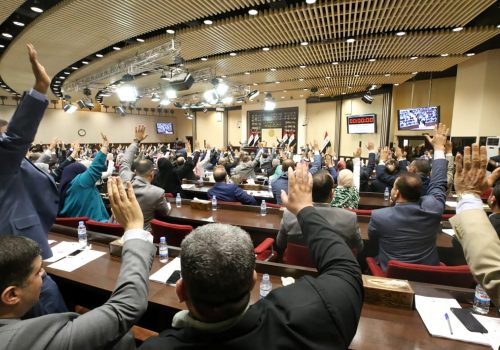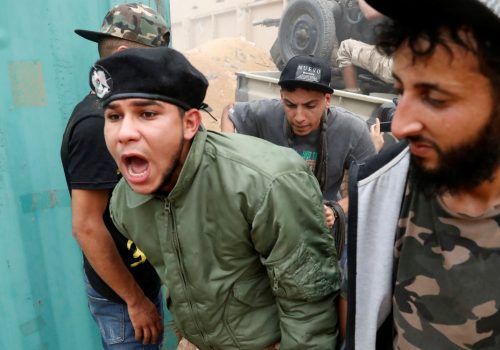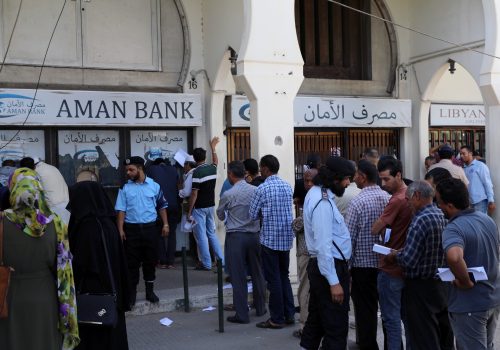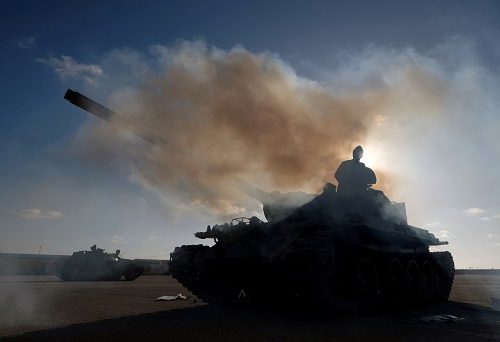Algerian election and legitimacy: Impossibility of change
After days of unrest and sizable street protests across the country, on December 13 Abdelmadjid Tebboune—a former Algerian prime minister who served under the two-decade rule of Abdelaziz Bouteflika—was elected president of Algeria with 58.15 percent of the vote. It was an unexpected result for some analysts. However, not unexpected for the majority of Algerians who, after ten months of demonstrations, continue to demand the dismantling of the power system that has ruled Algeria since its independence.
According to the protestors, the new president and the other four candidates are representatives of the old establishment. In fact, all held official positions under the Bouteflika presidency and are linked to the pouvoir—a common epithet among the Algerian people—, which refers to the pervasive and corrupted political system and the inner circle of generals that retain the real power of the state. The Hirak, as the protest movement has been called, denounced the election as a “sham.”
Much of the same
The vote is perceived as an attempt by the regime to merely regain credibility and popular support without passing through a genuine national dialogue that could lead to a profound revision of the current political mechanisms of the country. The protesters called for a massive boycott of the election in light of the increased repression of activists since last summer, a clear sign of the growing irritation of the Algerian regime, that, according to Amnesty International, could further degenerate in the next few months.
The will of the army chief of staff, General Ahmed Gaïd Salah, considered the strongman of the country and the architect of the elections, was imposed: he wanted the elections to take place and elections were held accordingly. From a historical point of view, it is possible to highlight that elections have often been traumatic events for the country: the large success of the Islamist party Front Islamique de Salut in the first multi-party elections held for regional and communal assemblies in June 1990 persuaded the military to stop the following parliamentary election of 1991. On that occasion, many Algerians voted for the Islamist party in order to punish the regime created by the Front de Libération Nationale (FLN) party, which they claim betrayed all the values of the war for independence.
Protecting the power system
Consequently, the reason behind the military’s choice to stage a coup d’état and cancel the elections was the need for the regime to protect the power system from an alternative and more inclusive one that the Islamic movement was claiming through elections. This pit-stop in the path towards democratization opened the door for the following black decade of bloody civil war. The political liberalization façade adopted by many Middle Eastern regimes during the nineties in order to respond to global pressures for change failed to support the forging of a democratic pact or to introduce wide-ranging reforms. Instead, those regimes were formally transformed into liberalized autocracies where the state-controlled processes of political change became paradoxically necessary for their survival.
Furthermore, the enduring legacies of authoritarianism and the resilience of the Algerian power mechanisms after the trauma of the civil war and after the end of the Bouteflika era, are a typical example of this process. It instrumentally uses elections as a moment of legitimation and reaffirmation of the authoritarian power of the armed forces against the anti-government movement. The vote of December 13, therefore, does not appear to be a real electoral procedure, but simply a formal ratification of the choices adopted by the military-backed regime. General Salah has repeatedly declared that the presidential elections “are the only way out for Algeria,” rejecting any alternative and ignoring the requests of civil society.
Lack of popular legitimacy
Above all, what is unbearable for the military is to lose the façade of a civilian government, to be clearly identified as the ones who hold real power without any popular legitimacy. However, by imposing the vote as the only possible way out of the impasse, the army chief further deepened the division between the army and the people, reducing the chances of an agreement. So, each electoral event risks being a point of no return.
Last February, during the first phase of the protests, General Salah emerged as the leader within the political vacuum, and he has been able to reposition the Algerian armed forces, distancing them from the Bouteflika regime. Moreover, Salah was the force behind an anti-corruption campaign that arrested leading members of the former president’s inner circle, among them the president’s brother, Saïd Bouteflika.
A new civil government
Furthermore, Salah was one of the major supporters of a road map leading to elections in the shortest possible time, which would avoid a deeper reform of the political and economic architecture of the country, and simultaneously allow for the establishment of a new civil government, formally legitimized by a popular vote. In other words, General Salah created the façade of a civilian government in the eyes of the international community, seemingly restoring stability after almost ten months of street protests.
The choice of Tebboune as leading candidate was not casual: he served in Bouteflika’s government from 1999 to 2002 as communications and then housing minister, returning as housing minister from 2012 to 2017 when he was briefly appointed prime minister. But he was dismissed for criticizing some members of the president’s entourage, many of whom are now in jail on corruption charges. Since the start of the campaign, Tebboune highlighted his distance from the Bouteflika clan, becoming an acceptable name to offer for the vote. However, the decision to hold elections at any cost could represent more of a problem than a solution.
The new president has a clear lack of legitimacy in the eyes of the masses that demanded reforms before the polls.
So the new president has a clear lack of legitimacy in the eyes of the masses that demanded reforms before the polls. In this context, the real game-changer was the official turnout: in Thursday’s vote it was a record low of around 40 percent, a figure that highlights a legitimation crisis and the inability of the regime to renew itself.
Street protests lead to boycotts of the election
In contrast, in 1991 the opposition entered into the electoral process gambling on its fairness, now they refuse to accept it, since it is manifestly a fraud. So, this election acquired a dual meaning: for the general’s group, it was a test of their ability to put an end to the protest movement through a controlled transition to some form of “democratic rule,” in which the power system that existed for decades would be preserved. For the Hirak movement, the call for a boycott of the election was a test to gauge the level of support for the movement after ten months of mobilization.
Hence, in the light of the final result, authorities claimed the turnout of 40 percent was enough to support the decision to hold the election, give the new president legitimacy, and implement his reforms. However, the protesters may claim ultimate victory through the boycott that in some cities—especially in the Kabyle region, home to the country’s Amazigh minority—was able to block the vote.
In light of this scenario, one might question whether a weakened regime can survive without systemic reforms to the electoral process and if the regime’s determined defense of this election’s result could lead to a radicalization of the opposition and, as a consequence, to a new period of violence and brutal repression by the regime. Consequently, in a stagnant economy marked by a strong decline of foreign exchange reserves,—collapsed from $200 billion in 2014 to $60 billion as a direct effect of runaway spending and low global energy prices—and high unemployment at around 12 percent, especially among the young at 29 percent, the new government should avoid using the electoral result as justification to crack down on the Hirak movement.
Unrest and the process of change
Consequently, a better beginning for Tebboune would be to open a serious dialogue with the protesters and accept the necessity to realize, at least in part, the reforms the movement asks for. Furthermore, creating new avenues of participation for the population is critical for Algeria now rather than a simple topic for discussion in a rubber stamp parliament. The plain continuation of the status quo is a clear recipe for a future of turmoil and instability. Finally, the United States and European countries have an important role to play in supporting the new government on its road to a change in the political structure of the country, and can provide advice and economic support in order to alleviate the tensions that will inevitably occur in this process of change.
Karim Mezran is a resident senior fellow at the Rafik Hariri Center for the Middle East at the Atlantic Council.
Alessia Melcangi is a tenure track assistant professor of contemporary history of North Africa and the Middle East, as well as globalization and international relations at the Sapienza University of Rome. Follow her on Twitter @AlessiaMelcangi.
Related Content
Image: Protest to reject the results of the presidential elections in Algiers, Algeria on December 13, 2019. Abdelmadjid Tebboune, a former ally of Algeria's deposed leader Abdelaziz Bouteflika was elected yesterday president of the protest-wracked country in a widely boycotted vote, sparking another outpouring of anger on the streets today. Photo by Louiza Ammi/ABACAPRESS.COMNo Use France Digital. No Use France Print.



